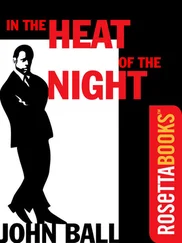Yes! There he was! And since the door had been deliberately left open by the departing Miles, it was inevitable that after a series of rather dragging footsteps — to which the Friar, as he stood in the centre of the room, listened with something like a suspension of breath — the man who entered made no pretence of knocking.
He was of low stature and of a thin weak body; but the extraordinary thing about him was his head. The head of Master Peter Peregrinus of Picardy was simply enormous. It made his body and legs look like those of a dwarf, though in reality they weren’t quite as small as that. The skin of his face was so deadly white that, if you had come upon him asleep, you would have certainly assumed that he was a corpse. His hair was straight, not curly, and of a glossy jet-black, with each individual hair as thick as that of a horse, so that their combined weight, massed together on the top of his skull, give his whole figure at a distance the effect of a wooden post on an exposed sea-bank, with either a thick growth of dusky seaweed covering the top of it, or a big black feathery bird perched upon it.
The chief peculiarity of Master Peter’s mouth was its absence of lips. It was simply a slit in smooth white marbly stone. And it seemed as if in dispensing with lips it had also decided to dispense with teeth. What did appear, and that not unfrequently, was Master Peter’s tongue. This object, abnormally long, and unusually pointed, was always shooting out from that slit in its marbly home, and every time it with-drew it gave the impression of having licked up some form of life which it would shortly be digesting.
But what the most ramificating, debouching, circumnavigating, deviating, perambulating chronicler would have had to be leading up to all this while, like a slippery serpent approaching something as hard to catch off-guard as itself, are, as the simplest reader has long ago guessed, Master Peter’s eyes. These were so large that when the man was excited, as he always was when not stunned by a blow or sunk into an impenetrable gulf of sleep, they conveyed the impression of being a pair of outlets for some interior volcano that if it were blocked up or barred down, would burst the cranium that contained it into a million smithereens.
It was doubtless to evade, for at least a couple of beats of the pulse of time, a glance into this explosive crater that Roger Bacon, uttering, as casually as he could, the exclamation, “Well! Well! Well!” made a deliberately slow circuit round his visitor from Picardy, and firmly, calmly, magisterially, and yet very softly, closed the door.
On returning from this breathing-space it can be believed he felt no surprise when he found Master Peter already seated at the table, not only tapping with the narrow finger-nail of his longest finger the word “vibrationem” half-way down the parchment page in front of him, but even steering a little horn-cup, with red wine-stains inside it, up and down among the oddly-patterned wood-marks of the table’s edge.
Master Peter’s demonic spirit did indeed so completely dominate the situation that the nervous Friar found himself seated at his own table in the visitor’s seat with the visitor in the host’s seat, found himself staring blindly into those two black holes, each of them a swirling Charybdisian vortex, and listening to the man’s words without asking him a single question or contradicting a single statement he made.
At last the man broke into his own tricky rigmarole by asking a plain blunt question. “Can you guess what I’m doing now?”
“Doing?” echoed Bacon in puzzled bewilderment.
“Yes, yes! Doing ! to earn my bread, of course! Doing what you yourself were forced to do when your family was ruined by those scurvy De Montforts and their bloody Barons! You put on a Friar’s grey rags: and I put on sword and shield. And I’m still a man of war, Roger old friend. Get that into your pullulating pipkin! In Picardy, let me tell you, when once you’ve served your Lord in a vital campaign and given your bowels more action than they’re used to, by living on hedges and in ditches, you’ll soon find that the lords and prelates, who gain by the blood you lose and the sweat you’re drained of and the dung you evacuate, will see to it — it’s as much their interest, as it’s the interest of the dear God Himself, to have worshippers — that you don’t die in an almshouse but live to sit at street-corners, selling burnt almonds, singing ballads, and praising the king.”
Petrus Peregrinus had arrived at the two syllables “dear God” in the rush of these words, when, moving very slowly, the door began creaking a little and swinging inwards. By lolling his black head an inch to the left of the Friar’s grey shoulder he was able to envisage the appearance of a large metal tray, the rim of which, directed by the hands that held it, was itself propelling the massive weight of that huge oblong of impenetrable wood.
It was as impossible for the troubled apprehension of Roger Bacon to miss this gesture of his formidable visitor as it was for him, the second he observed it, to restrain his cry: “But, Miles, Miles! what we need now—”
Nobody will ever know for a certainty just what was in the Friar’s mind at that moment; although it would be easy to imagine several things. But what happened was that the Friar at that particular moment lost consciousness. Whether he fell, chair and all, to the floor and was lifted up by both men after the tray had been deposited on the table, or whether he had himself, after losing all consciousness of what he was doing, stumbled across the room to his bed and laid himself down on it, must be left as a blank lacuna in any narration of these events, until either Petrus or Miles chooses to reveal what each of them must have retained very clearly in his memory.
What we do know from the consciousness of the Friar himself is that when he awoke from his trance, or whatever may be the correct name for the overwhelming mental oblivion that descended upon him, he found himself lying on his bed with the devoted Miles kneeling beside him and watching his awakening with the most intense and concentrated attention.
“Is he gone?” was the Friar’s first question.
“Yes, dear Master,” replied Miles. “He’s gone.”
“Do you know where he’s gone?”
“I think, great Master, he’s gone to the Fortress.”
“Do they expect him there?”
“It is my impression, O most Admirable of all Teachers,” responded Miles, “that they have been expecting him for some time.”
“How did they know he was here?”
“From what I could make out from him as we went along,” replied Miles, rising from his knees and standing, grave and upright, like a majestic Roman statue at the foot of the Friar’s bed, “but you know, great master, what he is, and what dung-hill talk he uses and how little he cares whether the person he’s talking to understands one jot of what he’s saying! I don’t take to him, master, and that’s the bone truth! He’s a scholar right enough. I don’t quarrel with his learning. Thee be a man of learning, thee wone self, and I admire ‘ee and look up to ‘ee for’t, like as thee were a kind of God in ‘eaven and no nonsense!
“But this bob-by-night, and I don’t care who hears me say so, be the sort of Mumbo-Jumbo — Prick-and-Thumbo what they do tell I be found in them girt Fairs in London and Paris and Consinotabel, such as travelling pipshaws do visit in their carry-otteries by day and by night.
“But the man be a man of Latin and Greek, us must allow ‘im that much, for all it be worth to ‘in, but when I do think of thee, master of mine, and how thy girt wisdom do go along with a girt heart, and how ye do give scoops and bowls o’t, yea! basinsfull o’t, to all and sundry as comes to beg for a crumb of real learning, it do make my gorge to ‘eave up. Thee do use thee’s girt learning to give us more pottage in all our porringers; but this man thinks only of inventing magnets to draw the gold from other men’s treasure-chests into his own. There! If I’ve not gone and done the one thing I didn’t ought to ‘a done — made ‘ee, O master my dear, dead-tired by listening to I!”
Читать дальше











